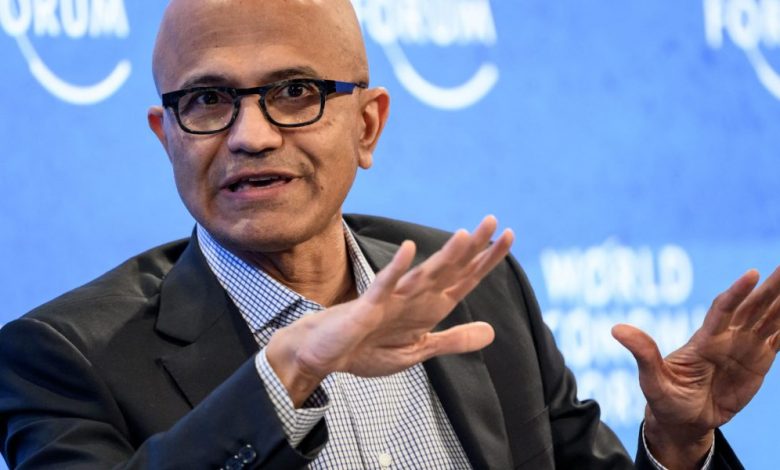Microsoft: Use ChatGPT to cut Google out of the cloud?

Microsoft’s recent investment in OpenAI was widely viewed as a last-ditch effort to revive its dying search engine Bing from obscurity, but could it actually be much more than that?
Cathie Wood’s ARK Invest believes Google has more to lose than its utter dominance of Internet searches, which generates nearly 60% of parent company Alphabet’s total revenue from online advertising sales.
In a research note published Monday, ARK analyst Will Summerlin argues that Microsoft CEO Satya Nadella may have another ulterior motive in mind: poaching Google customers, particularly in the dynamic cloud computing market.
“We believe that Microsoft aims not only to reduce Google’s search margins, but also to stop Alphabet from operating Google Cloud and other companies at a loss,” he wrote in the note.
There are currently three dominant global players that lease server hardware to third-party companies looking for easily scalable computing power.
The largest is Amazon, which effectively created the business model through its AWS entity. While most people assume the e-commerce giant’s revenue comes from online sales, they’re actually posting an annual loss. Only AWS’ $23 billion profit saved the company’s year from disaster.
Next is Microsoft Azure, number two, followed by the newest and smallest player in the business, Google Cloud Platform.
Together they are referred to as hyperscalers. Whatever computing needs your business may have from one day to the next, you can deploy it flexibly and dynamically by scaling up or down the computing power provided.
Year after year, the trio has achieved impressive growth in cloud computing services. Here, recent quarterly revenue increases of 20% to 30% or more — largely reflecting companies’ cautious IT spending amid fears of a recession — are viewed as poor by historical standards.
Microsoft CEO Satya Nadella remains optimistic, however, as companies can quickly reduce costs by outsourcing their computing needs, thereby cutting expensive investments in their own hardware.
“We’re still in the early innings when it comes to the long-term cloud opportunity,” he told investors late last month.
AI-powered search is far less profitable for Google
Summerlin argues that the roughly 8.5 billion web searches per day that Google processes subsidize heavy investments in strategic future areas like the cloud, which posted a $480 million loss in the fourth quarter.
Nadella’s recent multi-year, multi-billion-dollar investment in OpenAI, creator of the revolutionary ChatGPT, could force Google to release an AI feature within search that could cost it financially, Summerlin believes.
That’s because the inference costs for language models like OpenAI’s groundbreaking GPT-3.5 are “significantly higher” than those for search, Google’s bread-and-butter business, according to Summerlin.
Additionally, the monetization model for AI-powered chats is still uncertain compared to the advertising-based model that Google is so adept at.
In other words, any attempt to keep up with Microsoft and OpenAI could leave Alphabet in financial distress.
If the consequence then is to protect margins by reducing investments in currently loss-making activities like Google Cloud, it could end up ceding market share to Microsoft and its Azure platform.
“By lowering Google’s search margins, Microsoft could put pressure on other Alphabet companies, many of which compete with Microsoft,” Summerlin argued.
Neither Microsoft nor Google were immediately available for comment.
Learn how to navigate and build trust in your organization with The Trust Factor, a weekly newsletter exploring what leaders need to succeed. Login here.



